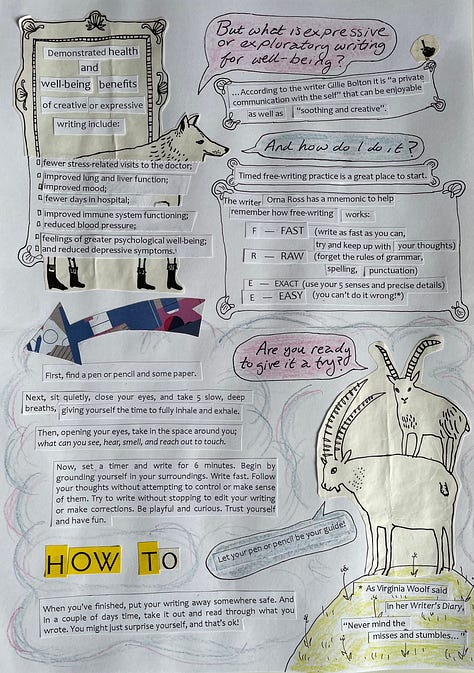Poetry & Care
Exploring 'artful care and careful art' at Manchester's Care Lab*



Care: OED Quick Search Results
care, noun
mental suffering, sorrow, grief; utterance of sorrow; burdened state of mindcare, noun
some kind of stuff (fabric)care, noun
The name for the Mountain Ash (also known as the rowan, a tree believed to protect against witchcraft and enchantment). Cognation of the Welsh cerrdín.care, verb
to feel concern, heed, attention, regard, solicitude
In my mid 30s, whilst working as a Teaching Assistant at Young Epilepsy, I started writing poetry again.
The poetry came in response to a very particular set of circumstances: I was doing an MA in Creative Writing >>>my marriage was ending >>>I was vulnerably housed >>>I was working for a temping agency >>>and my work manifested most days as care work (‘providing support to an individual who requires care on a daily basis’). Manifested most days as 1-2-1 care. As the work of paying close attention. As the work of regard and solicitude for another human being in a way I had not experienced since, aged 20, I surprised myself (and the rest of my world) by becoming a mother.
Now, in these new circumstances, I had again the experience of paying close heed to another person, of intense emotional and physical connectedness; but also the space to step away from and reflect upon that role—space allowed because my shift ended. I went home at the end of each day exhausted but restless. I went home, and then I went out of my home, and I walked.
For me, in that time, care work meant not so much ‘doing to’ as ‘being with’. I spent many hours with nonspeaking young people, communicating through sign language and nonverbal sounds, movement and intuition. Many hours sharing their absorption, quiet or otherwise. I remember a spring day passed sitting in front of a large window watching as a rectangle of sunlight edged across the carpet, became fragmented by the leaves of a nearby chestnut tree, and finally closed like a fan, folding itself away as the afternoon swallowed the sun.
In between hours of caring, of absorption, or boredom, or close observation, of being with as well as tending to—I (wrote) poetry. I (wrote) as I walked through a landscape I had known throughout my childhood. A landscape I had moved far away from, and recently returned to. I (wrote) as I walked, and returning home I took my heed, regard, solicitude for the place I was walking through, and turned that care to poetry. The attentiveness to light, place, sound, smell, touch, emotion that I was experiencing at work>>>the attention to and absorption in detail>>>the ongoing experience of motherhood>>>the variable state of my housing>>>the disintegration of my marriage>>>the shedding and remaking of selves that this catalysed>>>
all transferred to my walking-body and writing-mind.
And as I cared for others in my work, so I began to experience the landscape I inhabited, the paths I habitually walked, day after day, as caring for me. A place I could walk-out my utterances of sorrow upon; that offered protection as well as respite; that reciprocated my heed, attention, solicitude. A landscape that I became attuned to; and cared for by walking, by dwelling, by being with and not doing to. Finally, by entering into dialogue with a living, green archive, through language and signs, movement and intuition, sense and story; a guide.
*Thanks to The Care Lab, based at the University of Manchester’s Whitworth Gallery, for giving me the opportunity to both think through Poetry & Care and to discuss my work ‘in connection to health, care, and the arts’ with theatre academic and researcher, James Thompson, and spoken word poet and NHS nurse, Chris Seymour.
Our conversation included ‘readings of new and old poems exploring what it means to write of and with care; how these caring poems came into being; and the potential of poetry as a method for reflection, connection and research’. Thanks also to Jenny Harris for chairing the event, and to our audience for their insightful, caring, and challenging questions and comments.

